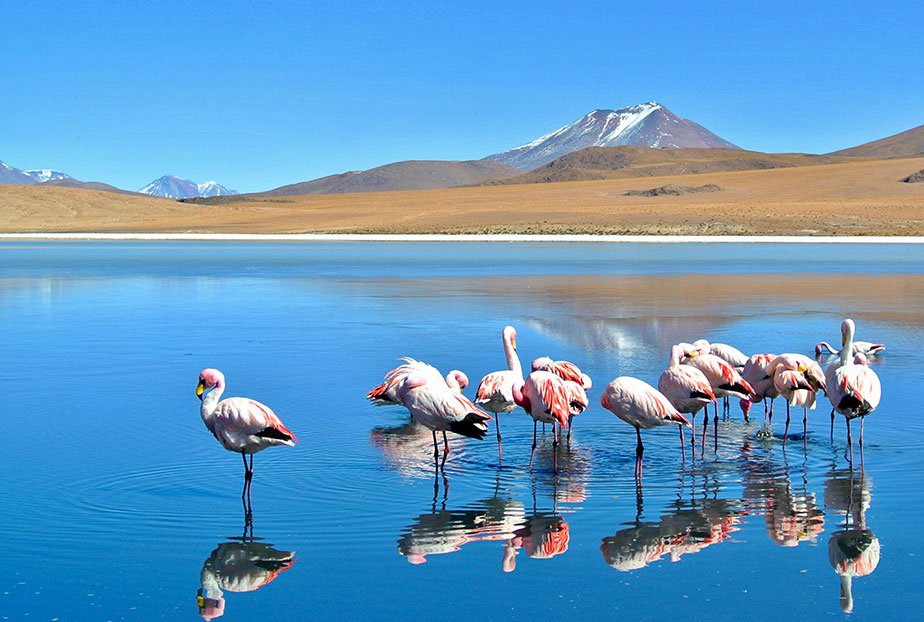College of Medicine and Dentistry Hot shot!
Hot shot!
- Future Students
- JCU Global Experience
- International Students
- Open Day
- How to apply
- Pathways to university
- Virtual Open Day
- Living on Campus
- Courses
- Publications
- Scholarships
- Parents and Partners
- JCU Heroes Programs
- Aboriginal and Torres Strait Islander in Marine Science
- Elite Athletes
- Defence
- Current Students
- New students
- JCU Orientation
- LearnJCU
- Placements
- CEE
- Unicare Centre and Unicampus Kids
- Graduation
- Off-Campus Students
- JCU Job Ready
- Safety and Wellbeing
- JCU Prizes
- Professional Experience Placement
- Employability Edge
- Art of Academic Writing
- Art of Academic Editing
- Careers and Employability
- Student Equity and Wellbeing
- Career Ready Plan
- Careers at JCU
- Partners and Community
- JCU-CSIRO Partnership
- Alumni
- About JCU
- Reputation and Experience
- Chancellery
- Governance
- Celebrating 50 Years
- Academy
- Indigenous Engagement
- Education Division
- Graduate Research School
- Research and Teaching
- Research Division
- Research and Innovation Services
- CASE
- College of Business, Law and Governance
- College of Healthcare Sciences
-
College of Medicine and Dentistry
-
Research
-
Project Portal
- CMD research project asset list
- Chronic Pelvic Pain Faecal Microbiome Study
- Service delivery strategies for rural/ remote allied health
- TREAD: Translational Research in Endocrinology and Diabetes 'Multiple projects'
- Australia's burden from peripheral artery disease
- Glucose control and outcome of peripheral revascularisation
- Outcome for abdominal aortic aneurysm admissions across Australia
- Diet and vascular disease
- Genetics of abdominal aortic aneurysm
- Biomarkers of aortic aneurysm and peripheral artery disease outcome
- Testing novel treatments for peripheral artery disease and abdominal aortic aneurysm
- Clinical trials of novel treatments for peripheral artery disease, diabetes-related foot disease and abdominal aortic aneurysm
- Multiple projects in Microbiology and infectious Diseases
- Piloting a continuous quality improvement framework to strengthen quality of care in Aboriginal residential aged care.
- Strengthening primary health care to promote healthy ageing and reduce risk factors associated with dementia in Aboriginal and Torres Strait Islander communities
- Multiple research opportunities in Psychiatry
- The role of partner dancing on biopsychosocial status of older adults and their significant others
-
Project Portal
- News & Stories
- Get Involved
- Short Courses & Professional Development
- Clinical Electives for Non-JCU students
- Dentistry
- Medicine
- Pharmacy
- Making Rural Health Matter
- Northern Queensland Regional Training Hubs
- Contact us
- Learning and Teaching
-
Research
- College of Science and Engineering
- CPHMVS
- Anthropological Laboratory for Tropical Audiovisual Research (ALTAR)
- Anton Breinl Research Centre
- Agriculture Technology and Adoption Centre (AgTAC)
- Advanced Analytical Centre
- AMHHEC
- Aquaculture Solutions
- AusAsian Mental Health Research Group
- ARCSTA
- Area 61
- Lions Marine Research Trust
- Australian Tropical Herbarium
- Australian Quantum & Classical Transport Physics Group
- Boating and Diving
- Clinical Psychedelic Research Lab
- Centre for Tropical Biosecurity
- Centre for Tropical Bioinformatics and Molecular Biology
- CITBA
- CMT
- Centre for Disaster Solutions
- CSTFA
- Cyclone Testing Station
- The Centre for Disaster Studies
- Daintree Rainforest Observatory
- Fletcherview
- JCU Eduquarium
- JCU Turtle Health Research
- Language and Culture Research Centre
- MARF
- Orpheus
- TESS
- JCU Ideas Lab
- TARL
- eResearch
- Indigenous Education and Research Centre
- Estate
- Work Health and Safety
- Staff
- Discover Nature at JCU
- Cyber Security Hub
- Association of Australian University Secretaries
- Services and Resources Division
- Environmental Research Complex [ERC]
- Foundation for Australian Literary Studies
- Gender Equity Action and Research
- Give to JCU
- Indigenous Legal Needs Project
- Inherent Requirements
- IsoTropics Geochemistry Lab
- IT Services
- JCU Webinars
- JCU Events
- JCU Motorsports
- JCU Sport
- Library
- Mabo Decision: 30 years on
- Marine Geophysics Laboratory
- Office of the Vice Chancellor and President
- Outstanding Alumni
- Pharmacy Full Scope
- Planning for your future
- Policy
- PAHL
- Queensland Research Centre for Peripheral Vascular Disease
- Rapid Assessment Unit
- RDIM
- Researcher Development Portal
- Roderick Centre for Australian Literature and Creative Writing
- Contextual Science for Tropical Coastal Ecosystems
- State of the Tropics
- Strategic Procurement
- Student profiles
- SWIRLnet
- TREAD
- TropEco for Staff and Students
- TQ Maths Hub
- TUDLab
- VAVS Home
- WHOCC for Vector-borne & NTDs
- Media
- Copyright and Terms of Use
- Australian Institute of Tropical Health & Medicine
- Pay review

Come holiday time, JCU Head of Oral Surgery, Victoria Mellish, sets aside her scalpel and becomes a globe-trotting shutterbug – whose photos have featured three times already in the Lonely Planet magazine.
The October edition of the popular travel publication includes a luminous, kaleidoscopic image of a stained glass window, which caught Dr Mellish’s attention during a visit to a cardboard cathedral in Christchurch, New Zealand, in January this year.
“Following the devastating earthquake, they used cardboard to create a transitionary cathedral to help rebuild the architecture and the community as quickly as possible,” she said.
“Being cardboard, there was a lot of beige and white in the building, but then shining colourful light streamed through the stained glass windows, which was beautiful.”
Five years ago, she trekked across Bolivia to capture fanciful pink flamingos, mirrored in a lake – another image snapped up by Lonely Planet.
“It was taken at Laguna Colorada, also known as red lake,” Dr Mellish recalled. “The area is surrounding by the vast desolate Bolivian salt flats, so it takes days to travel there and I stayed in hotels made of salt!
“Flamingos flock to the high-altitude region to feed on the plankton. It is the colourful algae and plankton which make their colour such a bright pink.”
Fittingly, the photo that marked Dr Mellish’s Lonely Planet debut was actually the fruit of an exotic dentistry elective project undertaken 10 years ago, as a final-year student at The University of Sheffield School of Clinical Dentistry, in Britain.
The image features two grinning Guatemalan women, one of whom sports a gleaming gold canine tooth.
“My project was titled, Comparison of aesthetic dental care in the UK and that of a contrasting healthcare system,” Dr Mellish smiled. “I wanted to make the project more arty, by taking lots of photos, rather than just writing about it.
“I travelled to Trinidad, Mexico, Belize and Guatemala to study the differing views on aesthetics.
“In particular, I focused on the history of Mayan civilization, where jewels were delicately drilled into teeth and how that tradition has adapted throughout the years. I noticed there was a high demand for gold front teeth and created a photographic collection of gold smiles.”
Her research approach worked a treat. She collected The University of Sheffield’s Kerr Dental Elective prize, as well as the Dental Protection photography prize.
Admittedly, Dr Mellish did have a head start when it came to illustrating her project. After finishing school, she undertook a one-year art foundation course at the Winchester School of Art, where she focussed on photography and life drawing.
But in the end, she opted for the human touch of dentistry.
“I was into art and design technology. Then I realized that design technology might be a bit more computer oriented, and I didn’t really want that. I’d rather work with people – physically making things,” she explained.
“That’s why I thought dentistry was a good option to mix the science, people and the variability into the work day, and be physically doing something, rather than sat at a computer.”
Dr Mellish now seeks to instill into dentistry students both the craftsmanship and compassion required to deliver high-calibre dental care.
“You need very good manual dexterity to be able to be a good dentist,” she said. “The general public don’t often realise that, nor how physically demanding it is.
“You also need really good communication skills to be able to relax your patients. And that’s harder to teach, but we strive to ensure our students are caring and put the patients first.”
Photography will remain a passionate hobby; Dr Mellish never travels without a couple of cameras, although the Christchurch photo was taken on her iPhone.
“You don’t necessarily need a brilliant camera; it’s the composition that is important,” she said.
She is already looking forward to her next overseas expedition – to Japan.
“I cannot wait to see all the colourful scenery, with beautiful temples and the craziness of Tokyo,” she said. “I’m also hoping to see locals in traditional dress and snow monkeys in the hot outdoor pools.”

